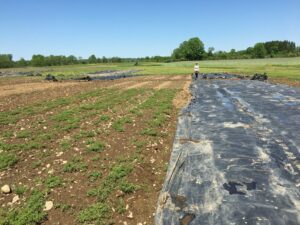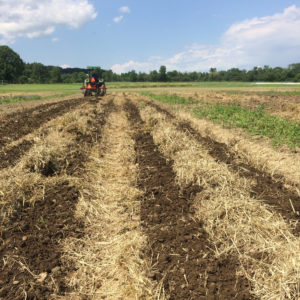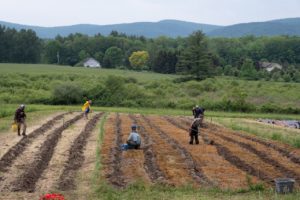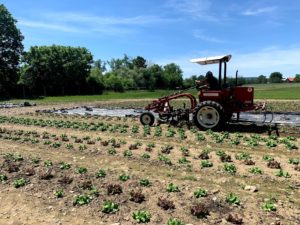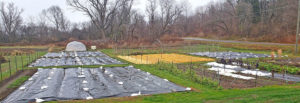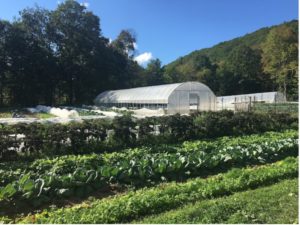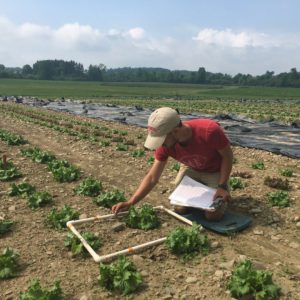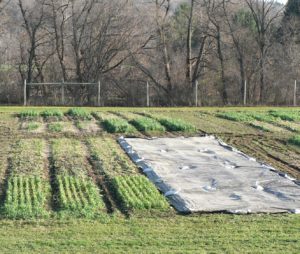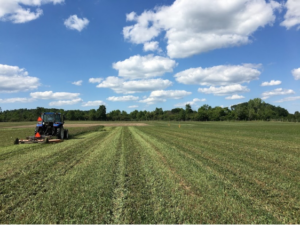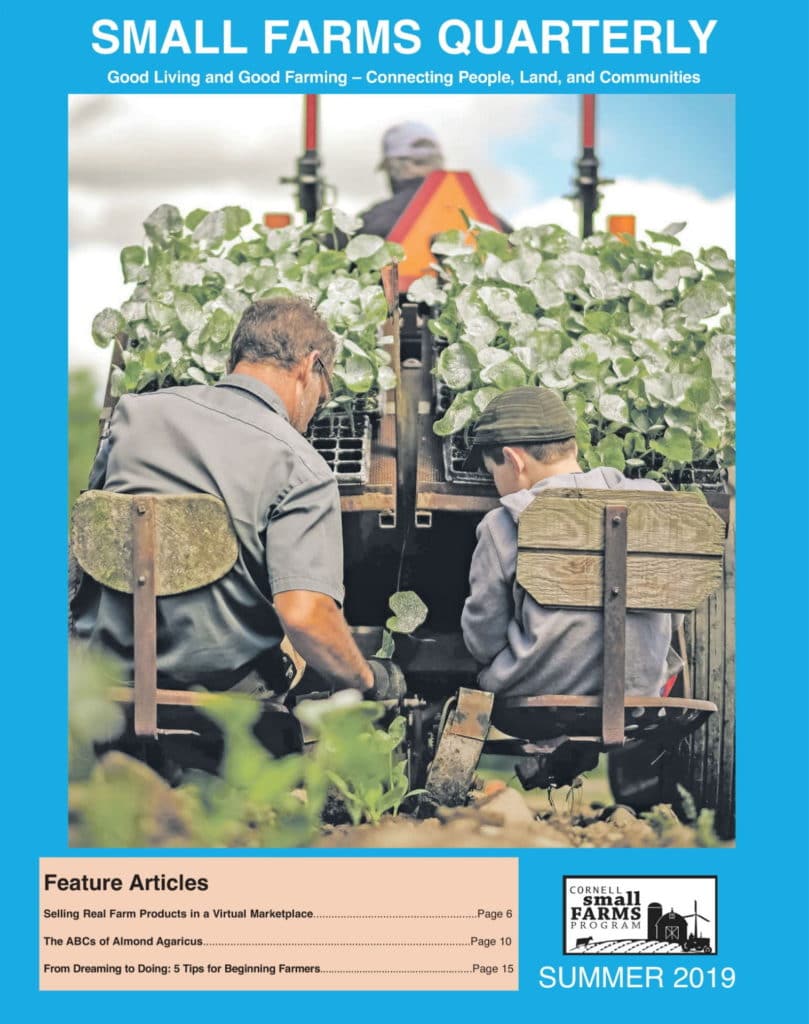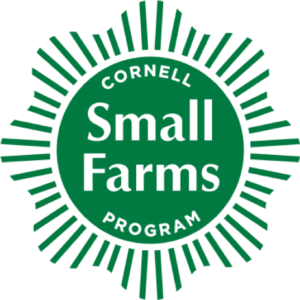Reduced Tillage
Receive news and resources as they are released by joining our newsletter.
Research shows how the legacy of tarping and mulching can lead to fewer weeds in no–till vegetables. By Stephen Stresow and Ryan Maher The Woes of Weeding One of the…
Read MoreHear the latest Cornell Small Farms Program research on reduced and no-till practices for vegetables at Soil Health and Climate Resiliency Field Days this July. We’ll be sharing our research…
Read MoreCSA Farm experiments to minimize inputs, mechanization and soil disturbance in their market-scale potato growing operation. By Bob Tuori, Ryan Maher, and Michael Salzl A major concern on our highly…
Read MorePass the time waiting for winter to turn to spring with new educational videos. Recordings from the 2022 Empire State Producers Expo are now available on the Cornell School of…
Read MoreAre you curious about how tarps work? Want to learn from successful practices as well as the challenges and shortcomings? Our Reduced Tillage project is happy to share a new…
Read MoreThe Empire State Producers EXPO has announced plans for a virtual conference with educational sessions offered from February 21 to March 11, 2022. The in-person event, initially scheduled for January…
Read MoreThe Cornell Small Farms Program continues to document our on-farm trials on tarping practices for organic vegetables. What’s happening under tarps? How are weeds and soils changing? How do they…
Read MoreTarps are clearly a multifunctional tool for small farmers and are being sized, sourced, and applied to fit the farm. How much can we ask of tarps, how are they…
Read MoreJoin us on January 12, 2021, to hear farmer experiences and research on cover cropping and no-till practices from around the region during the Soil Health Sessions at the virtual…
Read MoreSubscribe to the Small Farms Quarterly
Browse the online archive and subscribe to get each new issue when it's released.



